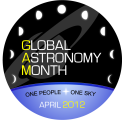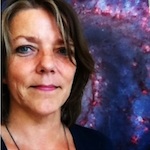GAM 2012 Blog
|
April 8 By Marieke Baan |
Back to the GAM Blog |  |
Science is experiencing a crisis of confidence, after claims about extraterrestrial life and reports about faster than light neutrinos that astounded the public. The time is long gone when a great discovery could become a story in the newspaper via a simple press release. |
||
Nowadays, news spreads quickly through blogs and social media to an audience that is often critical, talks back and demands an explanation from the scientists themselves. Are we dealing with a credibility problem or a PR machine gone mad - or is it a sign of changing times, in which authority is passé and everyone should have a say?
In December 2010 NASA released the news that a new form of life had been found: bacteria whose metabolism made use of toxic arsenic rather than phosphorus. The announcement of the discovery of "extraterrestrial life" led to intense speculation on the internet ahead of the NASA press conference. The incredible result was soon dissected: the research design was criticized and the reliability of the method questioned. On blogs, Twitter and Facebook the discussion verged on the defamatory. But the scientists and their PR machine refused to engage in the discussion. They did not even enter the debate through the press, never mind directly with the public. As a result the critics had the final word.
When in September 2011 CERN released the results of the OPERA experiment to the world, there was also substantial consternation, but for a different reason. The result, if correct, would break one of the fundamental laws of nature. "Einstein might be wrong", the newspapers screamed about the faster-than-light neutrinos. And "Time travel might be possible". That the mainstream media occasionally got out of hand was not the fault of the scientists, science journalists or communicators. They succeeded very well in explaining how science works: the researchers themselves barely believed their results and emphasized that replication of their experiment by other researchers would be necessary. And they were available at the speed of light, on blogs and via social media. Thanks to the openness of the CERN researchers and their active role in the online discussion, the information in this case was communicated well. No advance speculation, openness about the research design and methodology, and engagement in the debate with an eager audience.
Although conversations between scientists and the general public still mainly take place through traditional media, clear shifts can be observed. What happened in the case of the FTL neutrinos proves the benefits of talking directly with the public. There are opportunities here not only for the scientists themselves, but also for science educators and press officers. Times are changing and science should not get left behind. Particularly in the case of controversial issues, scientists should take advantage of the speed and momentum of social media and the internet to join the discussion with their (tax-paying) audience. There is a lot to win - particularly in terms of trust - for the sciences. Mandatory 2.0-training alongside traditional media training for all scientists!
|
|
Marieke Baan studied at the universities of Utrecht and Amsterdam. She worked for the Dutch public broadcaster NOS from 1991–2003. After two years working as a freelancer writing on new media issues, she then switched her career to astronomy and communications. She has been a Public Information Officer and Head of Communication at the Dutch Research School for Astronomy (NOVA) since 2005. This top research school is a cooperation between the astronomical institutes of the universities of Amsterdam, Groningen, Leiden and Nijmegen. The NOVA Information Centre communicates astronomy with the general public, press and schools in the Netherlands. The office is based at the University of Amsterdam and works with two staff members and several freelancers and contractors. Educational outreach has been developing fast since 2010, and features a mobile planetarium, digital apps and exercises for school children. Marieke was the Dutch coordinator for the International Year of Astronomy 2009. She is also the editor of the Dutch astronomy website www.
You can follow @mariekebaan on Twitter for astronomy and personal tweets and on @astronomieNL for astronomy only. |








